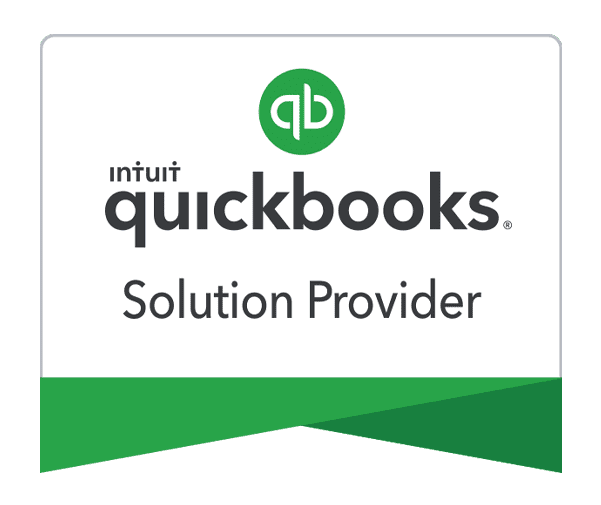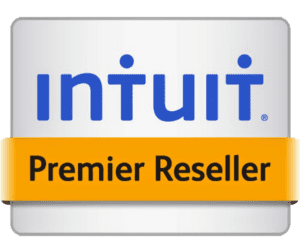
Paygration, Inc.
Managing late fees is a critical aspect of maintaining a healthy cash flow and encouraging timely payments from customers. QuickBooks offers robust payment features that help businesses manage late fees effectively, ensuring that overdue payments are addressed promptly and professionally. By leveraging QuickBooks’ tools and best practices, businesses can automate the calculation and application of late fees, reducing the administrative burden and enhancing financial operations. Proper management of late fees also helps maintain professional relationships with customers and encourages prompt payment.
Benefits of Managing Late Fees with QuickBooks
Streamlined Financial Operations
QuickBooks automates the process of calculating and applying late fees, streamlining financial operations and reducing the administrative burden. This automation ensures that late fees are consistently applied, reducing the need for manual calculations and minimizing errors. By automating late fee management, businesses can focus on more strategic tasks, such as financial planning and analysis. This enhances overall efficiency and ensures that financial operations run smoothly.
The automation of late fees also helps businesses maintain accurate financial records. By automatically tracking late fees and incorporating them into financial reports, QuickBooks provides a comprehensive view of the business’s financial health. This visibility enables better decision-making and more effective financial management.
Encouraging Prompt Payments
Applying late fees consistently and transparently encourages customers to pay their invoices on time. QuickBooks allows businesses to set clear payment terms and automatically apply late fees to overdue invoices, providing a financial incentive for customers to pay promptly. Transparent communication about late fees helps maintain professional relationships with customers and reduces the likelihood of disputes. By clearly stating late fee policies on invoices, businesses can set expectations and encourage timely payments.
Prompt payments are crucial for maintaining a healthy cash flow. When customers pay on time, businesses can better manage their finances and plan for future expenses. Consistent application of late fees ensures that customers understand the importance of timely payments and are more likely to adhere to payment terms.
Explore QuickBooks Payments for different QuickBooks products.
Setting Up Late Fee Features in QuickBooks
Configuring Late Fees
To set up late fees in QuickBooks, businesses need to configure their account settings to automatically calculate and apply late fees to overdue invoices. This involves specifying the late fee rate, grace period, and any additional terms that apply. QuickBooks makes it easy to customize these settings to match the business’s specific needs. Once configured, QuickBooks will automatically apply late fees to any invoices that are past due, ensuring that late payments are addressed promptly and consistently. This reduces the need for manual intervention and ensures that late fees are always applied according to the business’s policies.
The process of configuring late fees in QuickBooks is straightforward. Businesses can access the settings through the company preferences and set the parameters for late fees. This includes defining the percentage or flat rate for late fees, specifying the grace period, and determining how often late fees should be applied. These settings can be adjusted as needed to reflect changes in business policies or customer agreements.
Communicating Late Fee Policies
Clear communication about late fee policies is essential for maintaining professional relationships with customers. QuickBooks allows businesses to include detailed information about late fee policies on their invoices, ensuring that customers are aware of the terms and conditions. By clearly stating late fee policies, businesses can set expectations and reduce the likelihood of disputes. This transparency helps maintain trust and encourages customers to pay their invoices on time.
Including late fee policies on invoices provides customers with all the information they need to understand their payment obligations. It also serves as a reminder of the consequences of late payments, reinforcing the importance of adhering to payment terms. Clear communication about late fees can help prevent misunderstandings and ensure that customers are aware of the business’s policies.
Best Practices for Managing Late Fees
Regularly Reviewing and Updating Policies
Regularly reviewing and updating late fee policies is essential for ensuring that they remain effective and aligned with the business’s needs. QuickBooks makes it easy to update late fee settings and ensure that they reflect current business practices and industry standards. By regularly reviewing policies, businesses can ensure that they are fair and reasonable, reducing the likelihood of disputes and maintaining positive customer relationships. This proactive approach helps ensure that late fee management remains effective over time.
Updating late fee policies also allows businesses to adapt to changes in the market or regulatory environment. By staying current with industry standards and best practices, businesses can ensure that their late fee policies are compliant and effective. Regular reviews also provide an opportunity to assess the impact of late fees on cash flow and make adjustments as needed to optimize financial management.
Automating Payment Reminders
Automating payment reminders is another effective strategy for managing late fees. QuickBooks allows businesses to set up automated reminders for upcoming and overdue payments, helping keep customers informed and encouraging prompt payment. Automated reminders reduce the need for manual follow-ups and ensure that customers are always aware of their payment obligations. This helps reduce late payments and minimizes the need to apply late fees.
Automated payment reminders can be customized to suit the business’s needs. Businesses can set the frequency and timing of reminders, ensuring that customers receive timely notifications about their payment status. These reminders can include information about due dates, late fees, and payment options, providing customers with all the information they need to make timely payments. Automating reminders saves time and ensures consistency in communication with customers.
Common Challenges and Solutions
Handling Disputed Late Fees
Disputed late fees can arise for various reasons, such as misunderstandings about payment terms or errors in invoicing. QuickBooks provides tools to help manage and resolve disputes efficiently. By keeping detailed records of all transactions and communications, businesses can quickly address any issues and work towards a resolution. Having a clear dispute resolution process in place helps businesses handle disputes professionally and minimize their impact on cash flow. QuickBooks’ reporting and tracking features make it easier to manage disputes and ensure that they are resolved promptly.
When disputes arise, it’s important to address them promptly and professionally. QuickBooks allows businesses to track disputes and document communications with customers, providing a clear record of the issue and steps taken to resolve it. By maintaining detailed records, businesses can demonstrate their adherence to policies and procedures, helping to resolve disputes fairly and efficiently.
Balancing Customer Relationships
While applying late fees is essential for maintaining cash flow, it’s also important to balance this with maintaining positive customer relationships. QuickBooks allows businesses to manage late fees transparently and professionally, reducing the likelihood of disputes and maintaining trust with customers. By communicating late fee policies clearly and consistently, businesses can ensure that customers understand the terms and are less likely to dispute late fees. This helps maintain positive relationships while ensuring that late payments are addressed promptly.
Balancing the need for timely payments with maintaining customer relationships requires a thoughtful approach. QuickBooks’ tools and features enable businesses to manage late fees effectively while maintaining professionalism and transparency. By addressing late payments in a fair and consistent manner, businesses can encourage timely payments without damaging customer relationships.
Advanced Features for Managing Late Fees
Customizing Late Fee Settings
QuickBooks offers advanced customization options for managing late fees. Businesses can tailor late fee settings to match their specific needs and preferences. This includes setting different late fee rates for different customers or types of invoices, defining grace periods, and adjusting the frequency of late fee applications. By customizing late fee settings, businesses can create policies that are fair and effective, ensuring that late fees are applied consistently and appropriately.
Customizing late fee settings also allows businesses to respond to unique customer situations. For example, businesses can set up different late fee policies for long-term customers with a good payment history versus new or high-risk customers. This flexibility helps businesses manage late fees in a way that aligns with their overall customer relationship strategy.
Using Reports to Monitor Late Fees
QuickBooks provides detailed reporting features that help businesses monitor and manage late fees. These reports offer insights into the effectiveness of late fee policies, the impact of late fees on cash flow, and trends in customer payment behavior. By regularly reviewing these reports, businesses can identify areas for improvement and make data-driven decisions about their late fee management strategies.
Reports can also help businesses track the financial impact of late fees. By analyzing data on late fee revenue and the cost of managing late payments, businesses can assess the overall effectiveness of their late fee policies. This information can be used to make adjustments and optimize late fee management for better financial performance.
Conclusion
Managing late fees effectively with QuickBooks payment features helps businesses maintain a healthy cash flow and encourage timely payments. By leveraging QuickBooks’ automation tools and best practices, businesses can streamline their financial operations and ensure that late fees are managed professionally and consistently. Proper late fee management not only improves cash flow but also enhances customer relationships by ensuring clear communication and fair application of fees.
Optimize your late fee management with QuickBooks Payments set up by our experts at Paygration. We provide free consultations to help you determine whether it’s right for you, and we handle the setup process, including ongoing support. Get started by calling 866-949-7267.
















